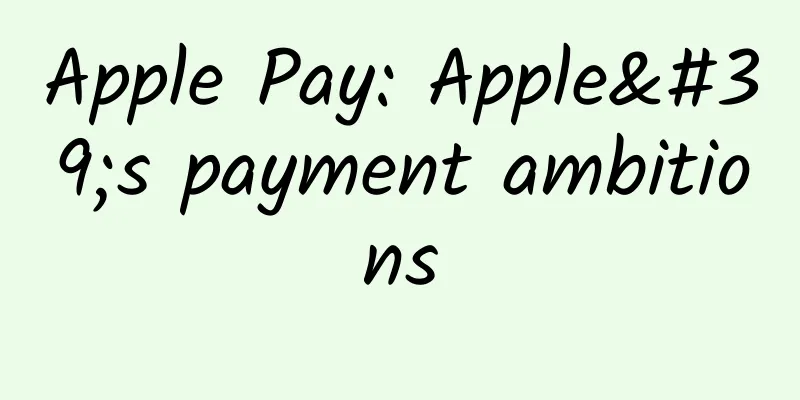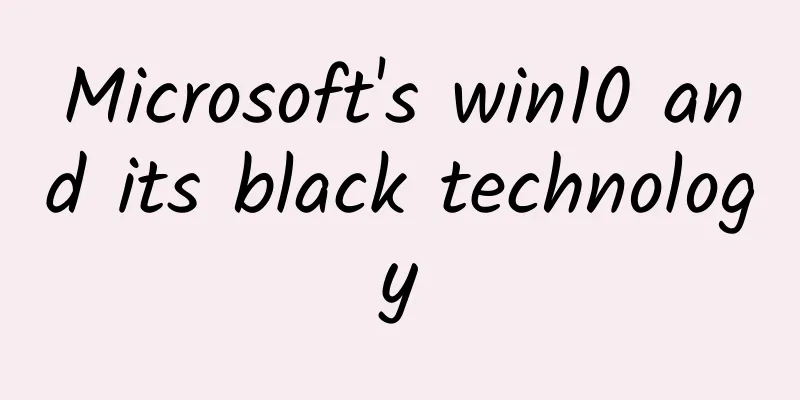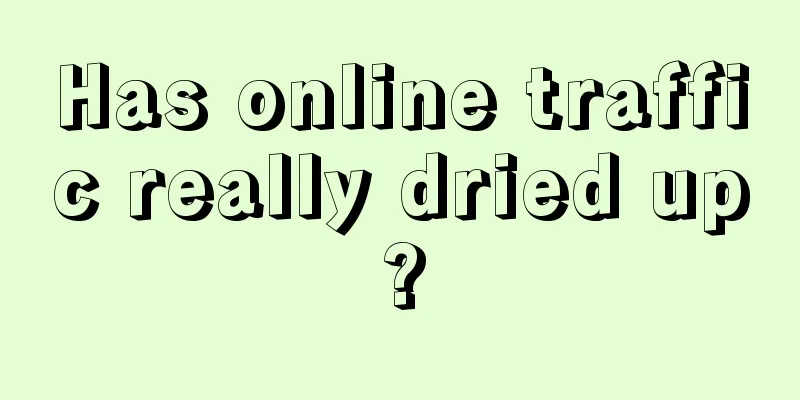Apple Pay: Apple's payment ambitions

|
This time, money was directly used and Jobs was no longer with us. Will its growth be smooth sailing or stillborn? Although it was born at the worst press conference since Apple in 2007 and it lasted only ten minutes, it is destined not to be ignored. Everyone admits that the recent iPhone 6 launch was the worst since 2007. Apart from the iPhone 6 that was leaked long ago, there was also the Apple Watch that Apple itself hadn’t figured out. However, Apple Pay, which was only on stage for ten minutes, could definitely revolutionize the mobile payment industry like iTunes revolutionized the traditional record industry. An accidental planting or an intentional one? Apple's other businesses besides mobile phones - Appstore and iTunes have accumulated a large number of credit card online payment users, about 330 million. In other words, these 330 million people are very likely to become Apple Pay users. Looking back at the fingerprint recognition system of iPhone 5, apart from the novelty and the joke of unlocking with a cat's paw, we must recognize that it is biometric recognition. This solves the game between security and convenience of mobile payment. Later, the addition of an NFC chip directly to iPhone 6 completed the last link in the payment process, and a complete offline payment closed loop was formed. In terms of online payment, Apple Pay directly verifies through fingerprints, which is undoubtedly one of the safest ways. Apple Pay card binding is online. You need to enter the credit card information on your iPhone first. Apple Pay will take your credit card information to the card organization for verification. After the card organization passes the verification, the token will be sent to Apple Pay and stored in the iPhone's security chip. The token format is actually a 16-bit string, which is compatible with the format in the traditional POS machine protocol! This means that Apple Pay is compatible with the entire traditional credit card payment network. Whether you swipe a credit card or use Apple Pay, it is transparent in the entire traditional payment system. Apple Pay's payment process is offline, and you can simply think of the iPhone as a credit card. Apple Pay only does what Apple does best, and the entire payment network is no different from traditional credit card offline payments. A famous Zhihu blogger believes that: Apple Pay has not eliminated any party in the traditional credit card payment system, but has given the world the most convenient payment experience. I personally predict that the Apple Pay model has a great chance of success. The key factor is that it does not radically destroy the original payment ecosystem, but fully respects the existing payment system. OK, how does Apple make money? According to existing reports, Apple Pay ultimately pays transaction fees to banks and card issuers. This agreement has not been made public (nor does it need to be), but The Financial Times reported that for every $100 in transactions through Apple Pay, Apple will receive 15 cents from banks, or 0.15% of the revenue (the daily credit card transaction volume in the United States is about $12 billion). Awkward Google When talking about Apple, we cannot ignore its old rival Google. In fact, Google has seen the mobile payment market, but it has not done anything. It is just because it is not Apple. Google Wallet was already three years old in April this year, but it can only say bleakly that it will not give up the mobile payment market. If Apple has built a closed loop for payment based on the iOS platform, Google's closed loop may not be so closed at some point. Once a loophole appears, it may be a disaster. In addition to Apple, there are many potential strong competitors, such as PayPal and Amazon. The three major foreign mobile communication operators, AT&T, Verizon and T-Mobile, have established a joint company called Isis, which is targeting the mobile payment market. Of course, some start-ups should not be ignored, such as Square, whose mobile payment solution allows users to complete mobile payment behaviors through iPhone, iPad or other Android mobile terminals. The most important thing is that Apple is already negotiating with China. Google, a giant, can afford failure, but the cost of failure needs to be carefully considered. Sinicization If Apple Pay is to enter China, the first problem is to transform the POS machines. According to a columnist from Sina, the cost of transforming one machine is 1,000 yuan. There are 10 million POS machines in China, 3 million of which have NFC functions. The cost of transformation alone is 7 billion yuan. So the question is, who will pay for this? China UnionPay, banks, or Apple? Mobile payment, which is dominated by Internet companies, is supported by giants Tencent and Alibaba. Although they are competitors, their goals are basically the same, which is to expand online payment channels and let users form a habit, no matter what means. Compared with the complicated and huge project of transforming POS machines, the change of online channels is very easy. The rapid popularity of Didi Taxi and WeChat red envelopes are examples of this. Of course, compared with Internet companies, traditional companies have more patience and advantages to operate offline. Faced with tens of trillions of card spending, Apple, operators, and Internet giants all want to get a piece of the pie. So Apple Pay will face countless competitors. Chinese Internet companies will become competitors that Apple cannot ignore. As for the marriage between Alibaba and Apple, I am as cautious as most people. Just like a blind date, if both parties think the other is good, they can definitely be together? What's more, business is much more complicated than marriage. |
<<: You read that right! Google and Facebook are competing fiercely for the Chinese market
>>: Farewell to the old era, Nokia officially changed its name to Microsoft Lumia
Recommend
YouTube App product analysis report!
This article is a product experience report of Yo...
The failure of community fission, my three lessons
Community fission is far from being as simple as ...
What are the specific preferential treatment standards in 2022? Attached is the latest list of pension standards for preferential treatment recipients!
In recent years, the standards for preferential t...
How can low-frequency App operations improve user activity?
APP operation and promotion should be carried out...
QQ, Weibo, Momo: Social media cannot escape the fate of social media
In 1994, the first Internet BBS in mainland China...
A complete list of essential tools for app promotion!
APP submission to large channel market: App Store...
How do experienced operators optimize delivery strategies?
Same product, same price, but very different conv...
Programmer's own ability expansion model
[[142043]] I heard someone say a word called “Com...
Shen Yi, "Reading to Lead the Trend: Five Thousand Years of Poetry"
Shen Yi's "Reading to Lead the Trend: Fi...
Activity operation: If these 4 points are met, there is no activity that cannot be done well
A complete activity can be divided into four stag...
Why did Cook visit China seven times in four years?
[[153449]] Looking back on these seven visits...
Yang Liang's English Vocabulary Memorization Guide 40 Episodes
Course Outline 00 The five most common mistakes C...
A money-making project that passively acquires traffic: You can also earn 200 yuan a day by intercepting traffic and selling information from Douyin comments
It is not difficult to make money. You just need ...
Query the price of Artair Real Estate Mini Program agent. How much is the price of Artair Real Estate Mini Program agent?
How much does the Ateler Property Agency Mini Pro...
Marketing promotion review: Behind the screen-sweeping test games of NetEase, Snowball and others!
This article reviews and compares two test games ...







![Hardcore Media-Product Selection Course [What Products Bring Their Own Traffic]](/upload/images/67cc0c4454046.webp)

![[Case] How to create video ads that better understand young people?](/upload/images/67cc17aca3d30.webp)